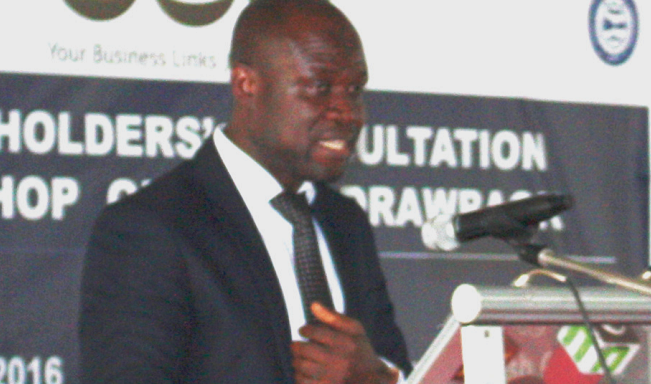
Decentralise duty drawback operations — GRA urged
The Chief Executive Officer of the Ghana National Chamber of Commerce (GNCC), Mr Mark Badu-Aboagye, has called on the Customs Division of the Ghana Revenue Authority (GRA) to decentralise the duty drawback operations across the country.
That, he said, would ensure quick refunds as well as improve business operations and increase revenue generation for companies that operated in the export trade.
Mr Badu-Aboagye said that at a stakeholder’s consultation workshop on duty drawback organised in Accra, by the GNCC, in partnership with the Association of Ghana Industry (AGI), and the Ghana Institute of Freight Forwarders (GIFF).
The workshop engaged representatives from the Customs Division of the GRA, Ministry of Trade and Industry (MoTI) and members from the private sector to strategise on how best to reduce the bottlenecks and cumbersome nature of the administrative procedures of the drawback regime.
Concerns
Most of the participants present at the workshop called on the government to streamline the duty drawback regime in order to help businesses in the export trade to thrive.
One after the other, the participants took turns to voice out their concerns about the negative effects the duty drawback is having on the survival of their companies.
A participant, Mr Van Abel, told the GRAPHIC BUSINESS after the workshop that his company has filed for the duty drawback for about three years, but was yet to receive their entitlement.
That, he said, had dipped his company’s revenue drastically.
He, however, indicated that there must be an interest charge on delays if the scheme was established to enhance the international competitiveness of Ghana’s private sector.
Another participant, Mr Kwame Buadu, opined that although the authority had settled all claims his company filled for this year, most of the claims they made had been rejected over the years.
“The reason being that even though they imported the goods into the country and added value to it, the export was done by another entity, therefore, the original importer in question is not entitle to any claims,” he added.
Mr John Manu, also a participant, recounted the number of times he had travel from Takoradi to Accra, just to follow up on administrative procedures of the drawback.
He called on the authority to set up a duty drawback desk at every office of the GRA across the country to help businesses in the export trade get access to their services.
Responds
The Chief Revenue Officer in charge of Duty Drawback, Mrs Sheila Vigbeador, responding to the complains made at the workshop, admitted that there were technical challenges in the refund process during 2014, but presently those challenges had been solved and the authority did not owe any exporter who had filed his or her document properly.
She said a study conducted by the authority had revealed that companies that deal in export trade did not diligently fill out document at the port when importing goods into the country.
That situation among others, she said, contributed to the delays and rejection of documents at the duty drawback desk of the Customs Division of GRA.
Official findings
Meanwhile, Mr Badu-Aboagye, officially presented the findings of a study conducted by the chamber, with funding from Business Advocacy Challenge (BUSAC), on the duty drawback regime dubbed ‘Streamlining the Duty Drawback Process in Ghana’.
The study was aimed at evaluating the operational challenges and bottlenecks that had bedevilled the implementation of the duty drawback framework.
The study revealed that a large number of exporters, who applied for the duty drawback over the past two years, had not received their due in full.
The payment of drawback refunds could take about 10 months, depending on follow-ups, the study found.
In extreme cases, payment of refund could be made after two years, while the shortest possible period for refund was five months.
One key concern the study highlighted was that most of the manufacturers and business owners did not have prior knowledge about the laws and regulations governing the duty drawback regime.
Another major challenge that hampers the effective implementation of the duty drawback scheme was the insufficient funds in the escrow account to settle drawbacks.
Recommendation
The study recommended that the government must create a window for the processing of relevant customs forms required for making applications electronically.
“The customs procedure, L.I 1724 makes adequate provision for the use of automation to facilitate the processing of transactions. An amendment to the GRA Management law to incorporate the relevant section of the custom procedure LI 1724,” it suggested.